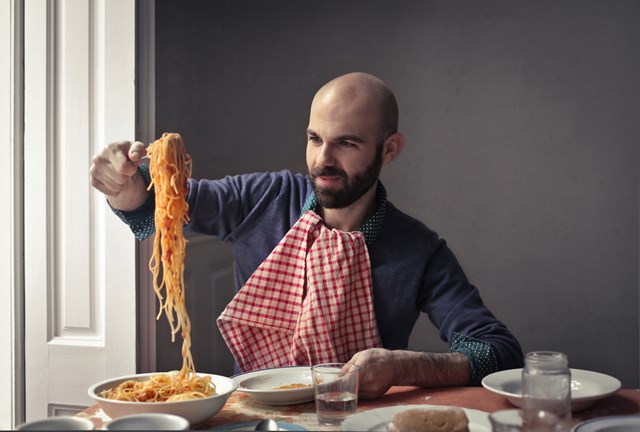
Eat most of your carbs at night, lose more weight! Could that be true? Could you enjoy a piled-up plate of pasta for dinner without busting a gut?
According to researchers at the Hebrew University of Jerusalem, that meal plan reduced daytime hunger and helped people lose 20 per cent more weight than going on a traditional low-kilojoule diet.
In the study, researchers split 78 Israeli police officers into two groups and placed them on nearly identical six-month-long low-kilojoule diets (5500-6300kJ a day) eating equal amount of carbs, protein and fat throughout the day. The only difference: half of the officers ate most of their carbs at night while the other half ate them through the day. At the start and end of the study, researchers analysed blood hormone levels while the cops recorded their hunger levels.
The results: nighttime carb eaters lost 27 per cent more body fat than people on the standard diet. Surprisingly, they also felt 13.7 per cent fuller at the end of the study than the beginning, while regular dieters were hungrier. What’s more, the level of inflammatory hormones – which can lead to heart disease and cancer – in the nighttime group’s blood decreased by 27.8 per cent compared with only 5.8 per cent in the standard dieters.
But we weren’t sold, since most research shows that the timing of your meals matters less than your overall nutritional intake. So we consulted nutrition expert Alan Aragon to get to the bottom of things. His take? It’s important to note that researchers didn’t track the cops’ physical activity, and officers self-reported how much they ate. In other words, we don’t really know what they ate – or if their weight loss came from exercise instead of diet, says Aragon.
The bottom line: “Studies like this are useful for challenging the old dogma that carbs in the evening make you fat,” but so long as you nail your protein, carb and fat totals by the end of the day, you should time your meals according to personal preference, Aragon says. Diets that require you to time your meals are notoriously hard to follow (and usually not effective), he adds.
Related: This Simple Trick Could Help You Cut 860kJ A Day














